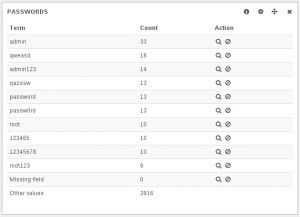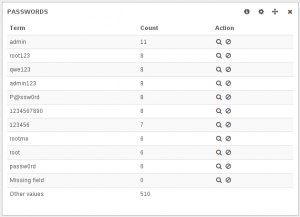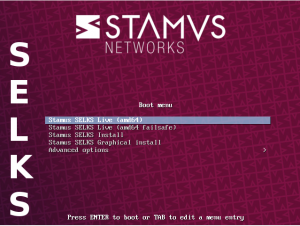Introduction
I’ve been playing lately on analysis SSH bruteforce caracterization. I was a bit frustrated of just getting partial information:
- ulogd can give information about scanner settings
- suricata can give me information about software version
- sshd server logs shows username
But having username without having the password is really frustrating.
So I decided to try to get them. Looking for a SSH server honeypot, I did find kippo but it was going too far for me
by providing a fake shell access. So I’ve decided to build my own based on paramiko.
pshitt, Passwords of SSH Intruders Transferred to Text, was born. It is a lightweight fake SSH server that collect authentication data sent by intruders. It basically collects username and password and writes the extracted data to a file in JSON format. For each authentication attempt, pshitt is dumping a JSON formatted entry:
{"username": "admin", "src_ip": "116.10.191.236", "password": "passw0rd", "src_port": 36221, "timestamp": "2014-06-26T10:48:05.799316"}
The data can then be easily imported in Logstash (see pshitt README) or Splunk.
The setup
As I want to really connect to the box running ssh with a regular client, I needed a setup to automatically redirect the offenders and only them to pshitt server. A simple solution was to used DOM. DOM parses Suricata EVE JSON log file in which Suricata gives us the software version of IP connecting to the SSH server. If DOM sees a
software version containing libssh, it adds the originating IP to an ipset set.
So, the idea of our honeypot setup is simple:
- Suricata outputs SSH software version to EVE
- DOM adds IP using libssh to the ipset set
- Netfilter NAT redirects all IP off the set to pshitt when they try to connect to our ssh server
Getting the setup in place is really easy. We first create the set:
ipset create libssh hash:ip
then we start DOM so it adds all offenders to the set named libssh:
cd DOM ./dom -f /usr/local/var/log/suricata/eve.json -s libssh
A more accurate setup for dom can be the following. If you know that your legitimate client are only based on OpenSSH then you can
run dom to put in the list all IP that do not (-i) use an OpenSSH client (-m OpenSSh):
./dom -f /usr/local/var/log/suricata/eve.json -s libssh -vvv -i -m OpenSSH
If we want to list the elements of the set, we can use:
ipset list libssh
Now, we can start pshitt:
cd pshitt ./pshitt
And finally we redirect the connection coming from IP of the libssh set to the port 2200:
iptables -A PREROUTING -m set --match-set libssh src -t nat -i eth0 -p tcp -m tcp --dport 22 -j REDIRECT --to-ports 2200
Some results
Here’s an extract of the most used passwords when trying to get access to the root account:
And here’s the same thing for the admin account attempt:
Both data show around 24 hours of attempts on an anonymous box.
Conclusion
Thanks to paramiko, it was really fast to code pshitt. I’m now collecting data and I think that they will help to improve the categorization of SSH bruteforce tools.


